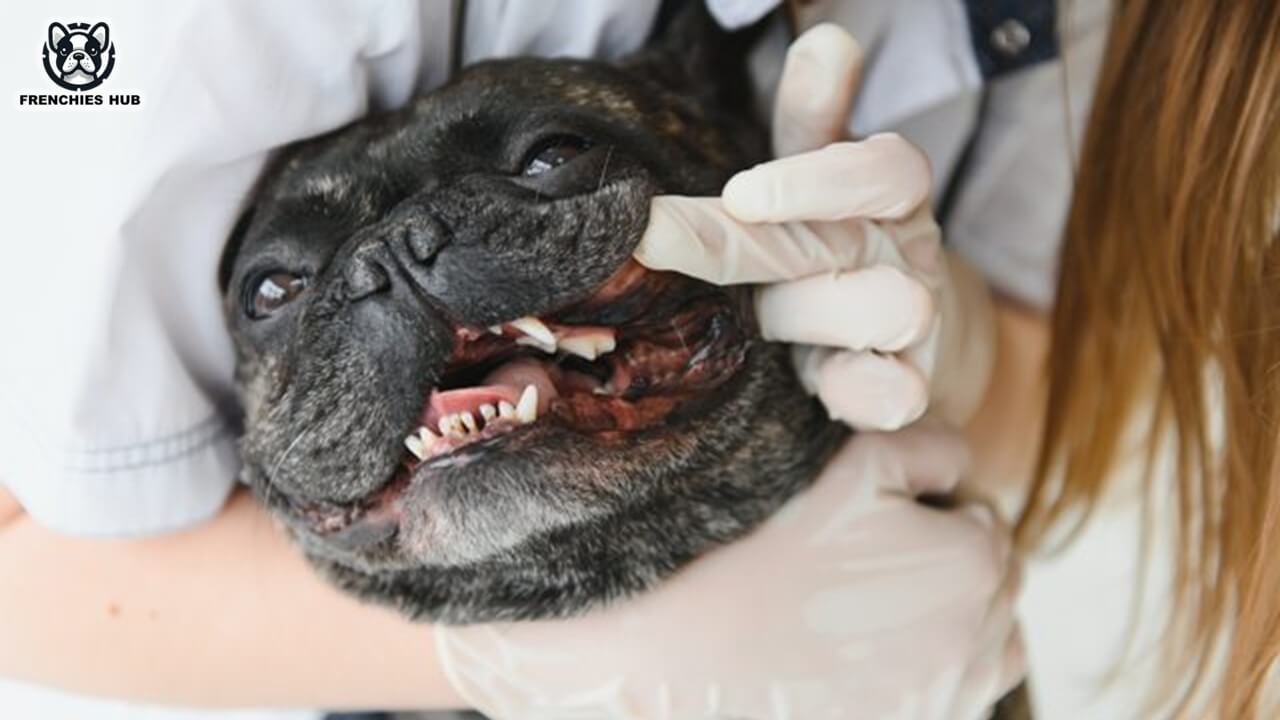When embarking on the journey of raising a French Bulldog, it’s essential to delve into the nuances that make this dog breed stand out amongst other breeds. Known affectionately as Frenchies, these small, short, and muscular body canines are a mosaic of patient, kind, and sometimes stubborn temperament. Their amiable and human-oriented nature makes them a joy to teach, yet, their unique shapes and sizes come with a set of health issues that necessitate special care. My personal experience with my Frenchie has underscored the importance of understanding their dentition. Unlike different breeds, French Bulldogs require a tailored approach to feed to ensure their health remains optimal. This, by no means, is a stressful endeavor but rather a rewarding challenge that deepens the bond between owners and their beloved pets. The intricacy of their teeth, coupled with their distinctive dietary needs, highlights the critical aspect of special care in maintaining their overall health. Embracing the responsibility of raising a Frenchie opens up a world of joy and a bit of a challenge, but with patience and understanding, it becomes an immensely fulfilling journey.
French Bulldog Milk Teeth
The world of mammals, especially dogs, is fascinating from the very moment of birth. When French Bulldog puppies start their journey in life, they, like all pups, lack teeth. However, this changes rapidly. By around three weeks, it becomes obvious that these puppies are starting to develop their milk teeth. This stage is crucial for feeding, as the pups transition from milk provided by their mother’s nipples to more solid forms of nutrition. My journey with Frenchie puppies has taught me that by the time they reach three to five months, these 28 milk teeth, also known as deciduous teeth, encompass 4 canine, 12 incisors, and 12 premolars, laying the foundation of their dentition.
The puppy stage for Frenchies is marked by a significant amount of pain and discomfort as these milk teeth grow out and eventually make way for adult teeth. This period is characterized by an urge to chew on things ranging from toys to anything they can scratch their gums against, aiding the teething process. As an owner, providing ample stimulation for their gums is crucial. A heads up for new Frenchie caretakers: expect a lot of drool and be ready with appropriate toys to ease their teething discomfort. This phase continues until the milk teeth are replaced, and the adult teeth take their permanent place in the Frenchies’ mouths, marking the end of the teething process but also the beginning of a new set of care routines as the puppy grows.
French Bulldog Adult Teeth

Witnessing the transition as Frenchies grow and undergo a significant change in their dentition from puppies with 28 teeth to adult French bulldogs with 42 is a fascinating process. This transformation is not only natural but mirrors the way humans lose their baby teeth. The skull and jaw of these adorable creatures expand, making room for larger, adult teeth to erupt. Starting around 12 weeks or three months, French Bulldogs begin to lose their baby teeth, a phase that is often accelerated as they chew on toys. This action helps the new, larger adult teeth that are developing underneath to push the old ones out.
By the time a Frenchie is 8 months old, it will have lost all its baby teeth and will boast a full set of 42 adult teeth. These are neatly arranged in their proper positions, with 20 on the top and 22 at the bottom. From my experience, ensuring that your Frenchie has plenty of appropriate toys to chew on during this period can significantly ease their discomfort. This developmental milestone is critical for their overall health and requires attentive care to ensure that each tooth settles into its rightful place without issue.
Clean Your French Bulldog’s Teeth

Oral hygiene is just as critical for our dogs as it is for humans. Emphasizing the cleaning of your Frenchie’s teeth is not only essential to avoid bad breath but also to prevent a plethora of dental problems. From tartar buildup to inflamed gums, the consequences of neglect can extend beyond the mouth, potentially affecting the liver and kidney. My personal journey in ensuring my Frenchie’s dental health taught me the value of regular checks. Looking inside their mouth should be done slowly and gently, ensuring their teeth and gum are fine. Following each check with praise makes your baby more receptive to the process, minimizing the risk of biting with those little, sharp teeth.
The tools and methods for keeping those canine teeth in tip-top shape vary, but I’ve found that using a toothbrush and toothpaste specifically designed for dogs is a reliable option. It’s fun trying to turn this routine into a game that both you and your pup can enjoy. Remember, human toothpaste is a no-go due to fluoride being poisonous to dogs, so always opt for vet-approved products. Besides brushing, I’ve incorporated dental chews and sticks into my Frenchie’s regimen. These are fantastic for cleaning off plaque and are a treat that my pup looks forward to, effectively keeping their teeth clean as an everyday treat post-mealtime.
For those seeking a natural alternative, carrots have been a game-changer. Peeling a carrot and offering it to your Frenchie can keep them busy while scrubbing their teeth clean of plaque and providing a healthy dose of vitamins. This method has become a twice-weekly ritual that not only aids in dental health but also supplements their diet with valuable nutrients. The blend of routine cleaning, the right products, and natural treats like carrots, ensures your Frenchie’s oral health is on the right track, making dental care a bonding experience rather than a chore.
Common Dental Problems in French Bulldogs

In the realm of humans, animals, and especially dogs, dental problems represent a significant health concern, with French Bulldogs standing a higher chance of encountering such issues more than many other breeds. These dental problems can range from the buildup of plaque on their teeth, leading to gum disease, infected teeth, and even tooth loss. It’s crucial to brush your dog’s teeth regularly to prevent the accumulation of plaque that can escalate into severe dental issues. My own Frenchie has taught me the importance of diligence in dental care, underscoring how tartar buildup on teeth can quickly evolve into infection in the gums and tooth roots, posing a risk of harming or damaging vital organs such as the kidneys, liver, heart, and joints.
Moreover, if these problems are not treated or prevented, the lifespan of a French Bulldog could be shortened by one to three years. Another peculiar issue in dogs, particularly Frenchies, is persistent teeth, where milk teeth refuse to give way even as the adult tooth begins to sprout. This can lead to crowding or force the adult tooth to erupt in an unusual position, complicating an already challenging feeding process due to an unnatural bite. My experience with such cases has highlighted the importance of early detection and intervention to manage these dental problems effectively, ensuring my Frenchie maintains a healthy and comfortable oral condition.
Addressing these dental problems requires a proactive approach, from routine brushing to seeking professional dental care when signs of tartar buildup or persistent teeth appear. The goal is not just to treat existing conditions but to prevent potential dental issues that can adversely affect a Frenchie’s quality of life. It’s a commitment to their health that demands attention, patience, and sometimes, a bit of creativity in coaxing them into dental care routines. But the payoff—a happy, healthy Frenchie with a vibrant smile—is undeniably worth every effort.
Loss of Teeth in Older French Bulldog

As our beloved Frenchies age, one of the signs that might start noticing is their teeth loosening and moving from their places. This phenomenon, a natural passage of time, often results from gum becoming inflamed, a condition exacerbated by bacteria in their mouth. This can eventually lead to the gum disappearing around their teeth, posing a significant risk to their oral health. The importance of maintaining good dental hygiene to preserve your Frenchie’s teeth and their beautiful smile for a longer period cannot be overstated. From my experience, starting this care routine early can make a substantial difference, but it’s also true that it’s never too late to start.
Diving deeper into the world of Frenchies, I’ve found immense value on following Facebook page like Frenchieshub, where Frenchie parents share their experiences and insights. This collective expert knowledge, much like the wisdom garnered from who have been breeding French Bulldogs for over 10 years on their farm, offers invaluable advice on how to care for these unique dogs. The pictures shared in these posts, featuring puppies from their breed, not only showcase the joy these dogs bring but also highlight the importance of proactive dental care.
Whether you are considering adopting available French Bulldog puppies or seeking to enrich your current Frenchie’s life, understanding the intricacies of their dental health is crucial. The commitment to their care, informed by questions and comments shared below articles or within community groups, can significantly impact their quality of life. Embracing this responsibility ensures that your Frenchie maintains not just a healthy set of teeth but also contributes to their overall well-being as they age.

